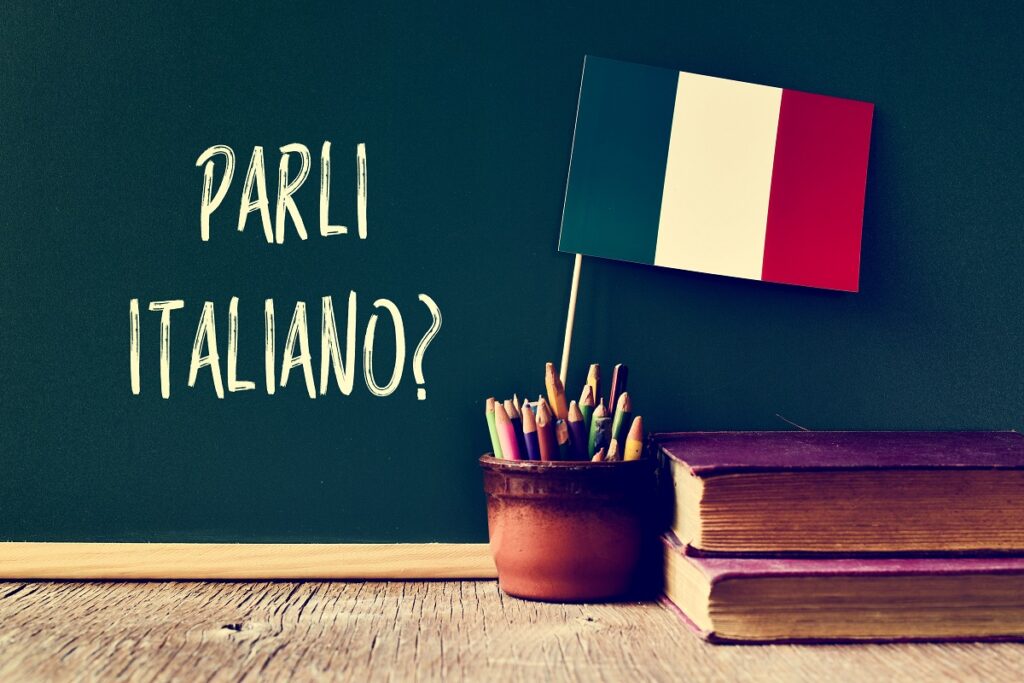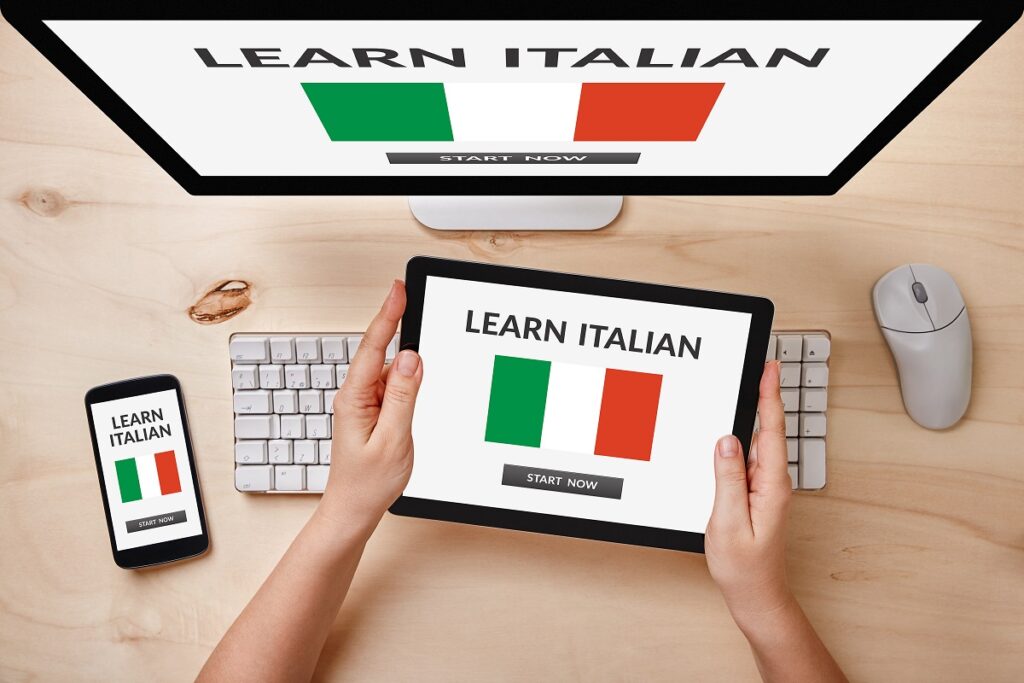How To Learn Italian: Tips and Resources to Learn Quickly
Are you curious about learning to speak Italian? When you start learning this rich and historic language you open new doors in education, careers, and culture. But how can you learn Italian, and are there ways to speed up the process of gaining a basic understanding of the language or attaining fluency?
Why Learn Italian?
It is possible for tourists to visit Italy and get by speaking English. So you might wonder if it is worth learning Italian before you visit the country or immerse yourself in Italian culture. Even if you never plan to move to Italy or visit in person, you can gain a much deeper understanding of history and culture by speaking the language yourself. You might find that you can:

- Listen to Italian music and opera in the language they were written in. Imagine the thrill of understanding Luciano Pavarotti’s words rather than simply admiring his skills as a tenor.
- Speaking Italian in restaurants allows you to order with confidence for friends and family, and try new dishes whose names you can now translate.
- Experience art history with full understanding of teachers and guides, gaining more intimate details of the lives of famous artists like Michelangelo.
- Become immersed in religious landmarks and historic destinations like the Vatican Museums without the need of an interpreter.
- Enjoy famous Italian movies and television without subtitles or missed translations.
- Read the words of Dante and Da Vinci in their original forms, and study the fields of art history, literature, philosophy, and archeology with a deep understanding of original texts.
- Make friends with people who speak Italian and connect more deeply with your family members who were raised in Italy.
- Shop the streets of Milan and study the works of fashion designers like Gucci, Armani, Prada, and Versace.
- Get a job in Italy teaching English or in another field that requires knowing multiple languages.
- Become eligible to become an Italian citizen by marriage or immigration.
Is Italian Easy to Learn?
Most English speakers, and those who speak other romance languages like Spanish, will have a relatively easy time learning Italian, because the roots of many common words are the same. In fact, you may already know more Italian words than you think you do!
Italian is a musical, expressive language, ideal for expressing thoughts and emotions. In addition, most native Italian speakers are excellent at non-verbal communication, and their facial expressions and gestures will help you grasp their meaning more effectively. So in general, you will find that the easiest way to learn Italian is to work with someone else who is fluent in the language and culture in the real world.
Practical Steps to Learn Italian
New students of the Italian language usually find that it is easier than some other European languages, because in general, all vowels and consonants you see in a word are pronounced aloud. All words end with a vowel that indicates the gender and number of nouns and adjectives.
While Italian grammar is not hard to learn, one important fact to remember is that accent points and apostrophes can change the meaning of words or phrases completely. As you are learning a new language, try these tips and techniques:
- Choose a Learning Method
There are all sorts of ways to start speaking Italian. It is vital to determine which methods suit your learning style. This will require trying out several different ones at first. You can learn Italian online, from a tutor, or organically in the streets of Italy.
- Learn the Most Common Phrases
Most languages have about 100 or so words that are used frequently like “Where are you from?” or “What time is it?” One of the great ways to learn conversational Italian is by listening to podcasts, watching videos, and listening to the news in Italian. There are even programs with “News in Slow Italian” which are designed for those learning the language.
- Find Another Student to Partner with You
There are online groups and formal Italian courses where you can practice your speech and learn from your peers. Make sure your Italian teacher can speak Italian fluently. The more you converse, the better your retention of the language will be, and the faster you will learn.
- Use Books and Resources Intended for Children
Children’s books and movies are a great place to start a language journey. You should read the books out loud to practice speaking Italian at the same time. As your vocabulary expands, move on to tween/teen books, and then eventually to high school or college level materials that interest you.
- Your Effort to Learn the Language Is Appreciated
When you are first learning Italian, you will make mistakes in pronunciations or in using the wrong words. Most Italian people are impressed that non-natives are making an effort to learn the language of their country. Be open to help from those around you and don’t be afraid to laugh at your mistakes.
- Learn Natural Language from Native Speakers
While you can learn much from books and formal classes, there are many things you can only learn from engaging in a culture. For example, you will hear many Italian speakers say the word “allora” with emphasis on the “ahh” sound. This is a filler word, like the English words “um” or “uh.” These and other fine points of speaking fluent Italian can only be learned by speaking with others.
- Visit, Study, or Live in Italy
The very best place to learn Italian is almost certainly in Italy! If you have the opportunity to visit or move to Italy, your language skills are likely to improve dramatically. Communicating in your daily life involves buying train tickets, asking for directions, talking to shopkeepers, and chatting with locals. The opportunities to learn to think in Italian are unmatched in a classroom setting.

Are You Eligible to Be an Italian Citizen?
There are many ways to become an Italian citizen and gain the right to live, work, or retire in Italy. Some of these paths require applicants to have a basic understanding of the Italian language. In 2018, the laws were changed to require those applying for citizenship by marriage to pass a test proving they can speak Italian at an intermediate level. Applicants for citizenship who do not have a spouse or ancestor who was an Italian citizen will also need to be certified at a level of B1 in Italian language courses.
A B1 level of proficiency means that you can carry out simple conversations on topics which are not considered complex, and be able to understand everyday conversations when you hear them. While many new citizen applicants will need to speak Italian, if you qualify to apply for citizenship by bloodline, because you had a qualifying Italian ancestor, you do not need to learn Italian before you apply.
While navigating through the process to gain Italian citizenship can be complex, resources are available to help you get started, and to help you determine if you need to learn to speak Italian before you can apply. To find out if you qualify for an easy path to dual or Italian citizenship, please contact the Italian American Citizenship Assistance Program at (305) 812-5512 today! You can also complete our quick test to determine if you can become an Italian citizen.

